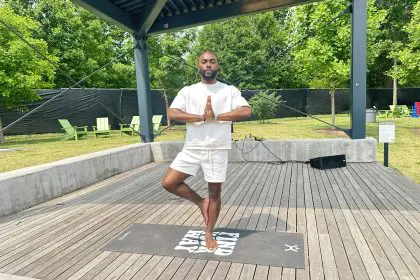New York Jets quarterback Aaron Rodgers has ignited interest in cayenne pepper water as part of his injury rehabilitation health routine at age 40. The veteran player credits teammate Thomas Morstead for introducing him to this spicy drink while recovering from hamstring, knee and ankle injuries.
Athletes often explore unconventional recovery methods. Michael Phelps made headlines for “cupping,” which left circular bruises across his body during the 2016 Olympics. Despite limited scientific evidence, he credited the traditional Chinese medicine practice for his performance.
Tom Brady raised eyebrows with his TB12 method, claiming avoidance of nightshade vegetables like tomatoes and eggplants reduces inflammation. Nutrition experts widely dispute this theory.
Novak Djokovic once attributed part of his success to sitting in a pressurized egg-shaped CVAC pod, claiming it helped his recovery. Scientists remain skeptical about the device’s purported benefits.
Russell Wilson stirred debate by claiming he drinks “nanobubble” water to prevent concussions, a practice lacking scientific support. The Broncos quarterback insists these microscopic bubbles aid recovery, though researchers find no evidence.
Floyd Mayweather garnered attention for using cryotherapy at minus-240 degrees Fahrenheit, far beyond recommended temperatures. While controlled cold therapy shows benefits, experts warn such extreme exposure poses unnecessary risks.
Medical experts outline key benefits of cayenne’s active compound, capsaicin. Scott Keatley, a registered dietitian, explains capsaicin may boost metabolism through increased thermogenesis, helping burn calories more efficiently. Research suggests it could also enhance digestion by stimulating enzymes and stomach acid production.
Studies indicate potential health advantages:
— Metabolism enhancement through thermogenic effects
— Improved digestive function
— Mild anti-inflammatory properties
However, experts emphasize limitations. Jamie Alan, pharmacology professor, notes drinking cayenne differs significantly from topical applications for pain relief. While topical use can block pain signals, consuming the spice may not deliver the same benefits.
Jessica Cording, a registered dietitian, warns against viewing cayenne water as a miracle solution. She stresses sustainable health requires balanced nutrition, consistent exercise, adequate sleep and stress management.
Certain groups should approach cayenne with caution:
— People with gastrointestinal conditions like ulcers or acid reflux
— Individuals taking blood thinners
— Those with irritable bowel syndrome
The scientific community continues studying capsaicin’s effects. While preliminary research shows promise, experts recommend moderate expectations.
Scott Keatley advocates a balanced perspective, noting cayenne water may provide temporary benefits but cannot replace healthy lifestyle choices.
For athletes considering this trend, medical consultation remains essential. Individual responses vary, and existing conditions may affect suitability.
Healthcare providers emphasize integrating any new supplement gradually while monitoring personal responses. They recommend maintaining focus on proven health foundations.
The growing interest in natural remedies highlights athletes’ search for safe recovery options. As research continues, understanding both benefits and limitations becomes crucial.
For those interested in cayenne water, experts suggest starting with small amounts and tracking effects. This measured approach allows safe exploration of potential benefits while minimizing risks.
Ultimately, while cayenne water shows promise, it works best as part of comprehensive wellness strategies rather than standalone solutions.















